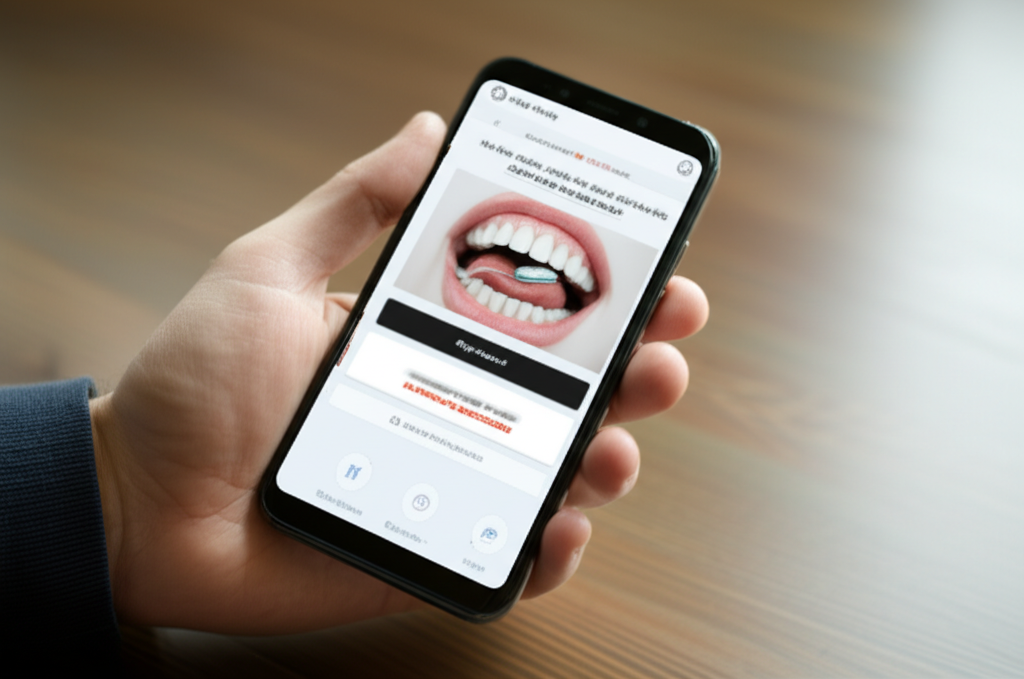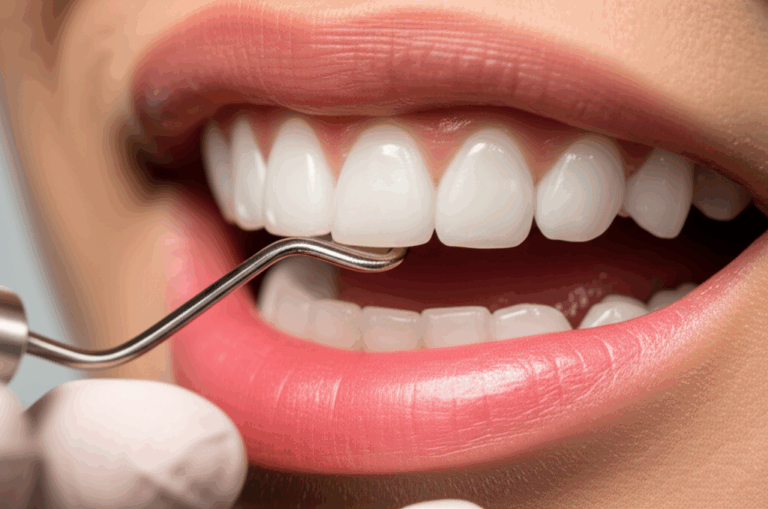
How to Book a Dentist Appointment When Not Registered: My Complete Guide to Urgent and New Patient Care
Table of contents
- Introduction: The day I needed a dentist with no registration
- Understanding “registration” and why it matters
- Immediate steps for urgent and emergency dental care
- Finding a dentist for new patient care when you’re not registered
- The booking process for unregistered or new patients
- Costs and payment options for new patients
- What to expect at your first dentist appointment
- Long-term solutions: Getting registered for regular care
- Frequently asked questions (FAQs)
- Conclusion: Take control of your dental health today
Introduction: The day I needed a dentist with no registration
I’ve been the person who cracked a tooth on a Saturday night with no regular dentist and no plan. I felt stuck. I called a few places the next morning. Some told me they weren’t taking new patients. One told me to try again on Monday. My tooth hurt non-stop. That rushed search taught me how to get urgent dental help without being registered and how to get a new patient slot fast. This guide shares the steps that helped me, plus what real dentists suggested when I asked. You’ll see what to do in a dental emergency, how to book if you’re new, what to expect at your first appointment, and how to get set up for regular care so you don’t get stuck again.
Understanding “registration” and why it matters
What does “registered” mean in dentistry?
In many places, a dental office keeps a patient list. If you’re “registered,” you’re on that list for check-ups and ongoing care. It helps the clinic plan and makes sure the same team looks after you. Your records and X-rays stay there, too. Some public plans like NHS in the UK work this way, but clinics can open and close to new NHS patients when they are busy.
Why can’t I just walk into any dentist?
Sometimes, you can get emergency help even if you’re not a regular patient. Many clinics keep a few slots for emergencies, even for people not on their list yet. For normal visits, walk-ins often don’t work as places get full. They also need to look at your medical history before treating you. Clinics try to keep their own patients with the same dentist for safety. Don’t worry if you’re not registered—you still have choices for emergency and new patient care.
Immediate steps for urgent and emergency dental care
First, figure out how serious your problem is.
Get help fast if you have:
- Really bad toothache that keeps you awake
- Swelling in your face or gum or jaw area
- Bleeding after an accident or taking out a tooth that won’t stop
- Infection or abscess with fever or swelling
- Tooth knocked out or moved after an accident
- Trouble breathing or swallowing and mouth swelling
Get seen soon (not an emergency but urgent):
- Chipped tooth with sharp edges
- Lost filling or crown but not a lot of pain
- Broken dentures you need to talk or eat
- Mild tooth sensitivity
- Mouth sores that don’t heal after 2 weeks
Who to contact right now:
- Phone helplines: In the UK, call NHS 111. Say you’re not signed up with a dentist. They ask about your problem, then send you to an urgent care dentist, an out-of-hours clinic, or a close-by practice with emergency times. I did this with a wisdom tooth issue and got seen the next morning.
- Urgent Dental Care Hubs: These handle real emergencies for people not on their list. They check you, give pain relief, treat infection, and get the problem under control. Ask about what comes next if you need more help.
- Dental hospitals: Go if you hurt your face, have a big infection, or need expert help. They often have urgent clinics in the day. Bring your medicine list and health info.
- Private emergency dentists: Some private clinics let new people in for same-day help, even on weekends. It costs more but is faster. Say, “I’m a new patient and I have bad tooth pain today.” Search “emergency dentist near me,” check reviews, and then call to ask about prices.
For nights, weekends, and holidays:
- Some places run special dental help lines or clinics.
- A few private offices stay open on weekends for extra fees.
- On big holidays, start by calling a help line.
What to do for pain if you have to wait:
- Rinse your mouth with warm salt water.
- Take regular pain pills like ibuprofen or paracetamol if safe for you.
- Hold a cold pack on your cheek if swollen.
- Try temporary filling stuff from the chemist to cover a lost filling or crown.
- Sleep with your head up if swelling is annoying.
- Stay away from very hot or cold drinks, chew carefully.
What dentists do in emergencies:
They figure out what’s wrong, may take X-rays, and stop your pain. You might get antibiotics for infection, a quick filling, or tooth pulled if it can’t be fixed. They’ll tell you what to do next.
Finding a dentist for new patient care when you’re not registered
NHS dentists and public systems:
If you’re in the UK, you’ll see places “taking new NHS patients” or not depending if they’re busy. Waiting times change by area. Here’s my trick:
- Use the NHS website or locator to find out who’s taking new people. Call the office to double check. Ask if they let new people sign up or only give one-off urgent care.
- Ask how to get on their list. Some places want to see you for a check-up before adding you.
- If you need help soon, ask for an urgent slot first, then register later on.
Private dentists:
They usually let new people in faster. You pay for your visit or use dental insurance. What to ask:
- Are you open to new patients right now?
- How much is the first check-up?
- What’s included (X-rays, cleaning, exam)?
- Can I get treatment the same day for tooth pain?
- What hours do you open?
Community Dental Services:
Some groups get help from special dental teams (kids with special needs, people who are sick, or afraid of dentists). Ask your doctor or look online to see if you qualify.
Visitors and overseas patients:
If you’re visiting, you can get emergency care but usually you’ll pay the full price. Call a private clinic or dental hospital for emergencies and bring your travel documents.
Students and people who just moved:
When I moved, I searched for nearby dentists that took new patients and booked a check-up. Students can ask their school for tips or look for discounts.
Walk-in clinics:
Some let you drop in, but most want a call first. If you go in person, show up early and bring your ID and any health info.
The booking process for unregistered or new patients
What to say when you ring up:
- “Hi. I’m not signed up with a dentist here. I chipped my tooth and it hurts a bit. Do you have emergency appointments?”
- “Hello. I just moved here and want a new patient check-up. Are you taking new people now?”
- “I’m visiting for two months, lost a filling. Can you see me this week?”
Things to tell them:
- Your problem and how long it’s been there
- Any swelling, fever, or trouble swallowing
- Your medicine, allergies, health issues (heart, diabetes, pregnancy, blood thinners)
- That you’re not signed up with them
- If you can go to another clinic nearby if needed
Online booking:
Many offices now use online booking. Pick “new patient” or “emergency.” If no times show, call anyway. Some slots are not online.
Forms for new patients:
You’ll fill out your health info, personal details, and give consent. Be honest—this keeps you safe.
Bring these with you:
- ID like passport or driver’s license
- Proof of address if needed
- NHS number if you have one
- List of any medicines
- Any record of past dentist visits
- Insurance card if you have one
Referrals and deciding what happens next:
If your problem is big, you might get sent to a special dentist or hospital. Emergency care comes first, other stuff (like getting braces) can come later.
Costs and payment options for new patients
Understanding costs:
- Private care: Expect to pay a first visit fee, then more depending on what you need. Ask for a written quote. Most want payment the same day. Some offer payment plans.
- NHS or public care (UK): Fees usually have bands. Band 1 is a check-up and X-rays. Band 2 covers things like fillings or pulling a tooth. Band 3 is for things like crowns or dentures. Costs change, so check the NHS website or ask the desk.
- Emergency visits: NHS emergency fees follow a set rate; private clinics charge emergency fees plus treatment costs.
Payment plans and options:
If you need lots of work, ask if you can pay bit by bit. Most private clinics can help arrange this if you pass a quick money check. If you have insurance, ask if the clinic works with your insurer.
Support for low income:
NHS may have discounts for people on certain benefits or with low income. Ask what paperwork you need. Bring it to your appointment.
No insurance?
That’s okay. Ask for a step-by-step plan—fix the worst thing first, then plan for simple upkeep later. Keeping up with check-ups can save you money in the long run.
What to expect at your first dentist appointment
Get there early
Arrive 10-15 minutes before to fill in forms and go over health stuff. Show your ID if asked. You might talk about payment before you start.
First check:
The dentist asks about your health and looks at your teeth, gums, and mouth. They check for gum problems and tooth holes. They may take X-rays if they need to see more.
Tools and comfort:
You might see them use small cameras or do gentle tapping or temperature tests. If you need to be numbed, they’ll explain what shots they use and how long it lasts.
Talking about your treatment:
You’ll get told what the problem is and choices for fixing it. For example:
- “You lost a filling. We can fill it today. If it keeps hurting, you may need more work.”
- “Your chipped tooth needs smoothing or maybe a cover later, but for now we can bond it.”
- “You have an infection. We’ll drain it and give antibiotics now, then later see if we save or pull the tooth.”
You’ll get clear aftercare notes if you had a procedure. Ask all the questions you want. They should explain the costs.
Emergency vs. regular care:
They’ll stop pain first. Bigger, long-term things like crowns, bridges, or dentures get planned for later.
A note about dental labs:
If you need a crown, bridge, or denture, your dentist sends the work to a special dental lab. See this link for how crowns and bridges are made. If you may get an implant, check this guide on implant dental labs. If you grind your teeth, a guard from a night guard dental lab can stop new problems.
Long-term solutions: Getting registered for regular care
Why keep seeing a dentist?
My pain got me in the door, but routine check-ups kept me healthy. Gums get better, breath fresher, and it can save you money and time.
How to pick a dentist for keeps:
- Location—easy to get to home or work
- Opening hours—see if they do mornings, nights, or weekends
- Services—can they do fillings, root canals, dentures, whitening, and send you to an expert if needed?
- Reviews—check Google Reviews, but don’t just look at one or two
- Safe and professional—In the UK, check their CQC rating and team registration with the General Dental Council
- Comfort—if you get nervous, ask what they offer for scared patients, like longer visits or sedation
How you get registered:
Usually, you get registered after your first check-up. The office puts you on their list, then books your next visit. If you went first for an emergency, ask to get switched to a regular patient.
Sharing your records:
Ask your old dentist to send your info over. This helps the new place know what’s been done and what’s needed. Your history can help them make better choices for future care.
Hygienist and prevention:
Book a clean-up with a hygienist, even if your gums seem fine. Some places let you book just a clean even if you’re not yet registered with their dentist.
If you need special work later:
- Root canal: your dentist or a specialist can do these
- Braces: ask about clear aligners or if you need a referral
- Cosmetic work: wait until teeth and gums are healthy—these fixes last longer if your mouth is in good shape first
Frequently asked questions (FAQs)
Can I get emergency dental help if I’m not registered?
Yes. Start with your local helpline like NHS 111 or call private dentists for same-day care. Urgent dental hubs and dental hospitals help with emergencies too.
How much does it cost to see a dentist if not registered?
It depends. UK NHS fees use a band system for urgent and regular care. Private clinics set their own prices. Always ask for a written cost before starting.
Do walk-in dental clinics exist for unregistered patients?
Some do, but calling first is usually better. Many save some emergency spots for phone bookings.
I’m new in town—how do I get a dentist quick?
Call a few clinics and ask if they’re taking new patients. Book a check-up soon, even if your teeth aren’t hurting. Pain? Ask for an emergency slot.
Can my old dental records be used with a new dentist?
Yes. Ask your old dentist to send your records and X-rays. It helps the new dentist and means fewer repeat X-rays.
What should I bring to my first visit?
Bring ID, proof of address if needed, your NHS number, list of medicines, and insurance info. Bring any recent X-rays if you have them.
How long does it take to get registered?
It varies. Some add you after your first visit, others when space opens up. Ask at the desk what happens at your clinic.
Can I book a hygienist appointment if I’m not registered?
Some places let you. It’s a good start to prevention while you wait for a regular spot.
What if I’m afraid of the dentist?
Tell them when you book. Ask about longer visits, numbing, or sedation. Many offices help nervous people with extra support.
Is there urgent care for children?
Yes. Kids with pain or swelling should be seen fast. Call your local helpline or practice. Community Dental Services can help if your child has other needs.
What about broken dentures or mouth sores?
Broken dentures get fixed fast because they matter for daily living. Mouth sores that last over 2 weeks need a dentist to look.
What if I have no insurance?
You can still go. Ask for a step-by-step plan and cost estimate. Some places let you pay over time. Fix the urgent stuff first, then book for prevention.
Conclusion: Take control of your dental health today
I learned that not being signed up doesn’t mean no help. You can get emergency care, and with a bit of effort, book as a new patient. Start with a phone call if in pain. Call private clinics if you want quick access. Gather your papers. Ask for clear costs and a written plan. Then sign up for regular care so your next visit is a normal check-up instead of a late-night search for help.
Tips I keep ready:
- Say you’re not registered right away
- Explain symptoms clearly, mention swelling or fever
- Ask about same-day or urgent visits
- Get a written estimate and care instructions
- Before you leave, book your follow-up for prevention
Additional context and resources
- Want to know what a dentist does day-to-day? See this overview on dentist roles and services
- Planning an implant? See how dental implant parts are made
- Nighttime teeth grinding causing trouble? A guard from a night guard dental lab can protect your teeth.
Final word
I wanted this to be clear and relaxed, because dental stress is real. Keep this guide for next time—or share with a friend. Your next step is easy: call, get help, then get booked in for a check-up so you only have to think about teeth when you smile.
Notes on clinical accuracy
This guide follows normal advice from dentists and health services for urgent care, new patient bookings, and safe first visits. If you need real medical advice, always talk to a dentist or call your local urgent care line.







